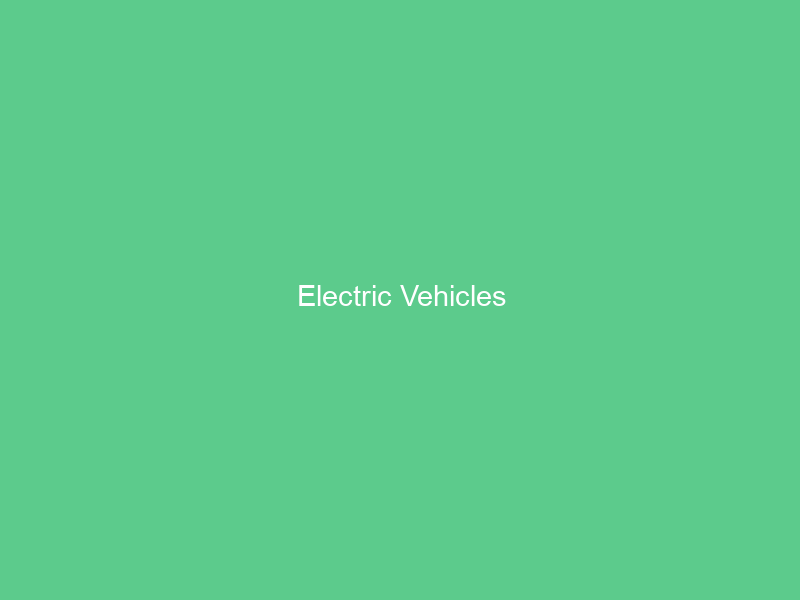Electric vehicles use battery power stored within them to operate, avoiding emissions from burning gasoline or diesel. Furthermore, these EVs can charge with electricity generated from renewable sources.
Electric vehicles (EVs) have grown increasingly popular every year, and most models available can easily fit into daily driving routines. Some of the top-rated EV models like 2025 BMW iX offer superior handling as well as many features to make daily life more comfortable.
Zero Emissions
California’s Zero Emission Vehicle (ZEV) Regulation mandates that large volume and intermediate volume automakers sell a minimum percentage of new electric vehicles on the market each year, including BMW, Tesla, Ford, GM, Honda, Kia, Nissan Volkswagen and Mercedes-Benz manufacturers who meet this criterion.
Electric vehicles (EVs) produce no exhaust emissions, significantly reducing their impact on air quality, particularly for low-income and frontline communities that have already been adversely impacted by mobile source pollution. Nonetheless, non-exhaust emissions such as tire wear will still have impacts such as reduced vehicle lifespan.
Regenerative braking capabilities of electric vehicles and other optimization technologies help increase their energy efficiency, and typically consume less energy than conventional vehicles when used under normal driving conditions. Extreme temperatures can significantly decrease range; in such instances, drivers must plan ahead or utilize another form of transportation when travelling for long distances. Fuel cell electric vehicles may be suitable for drivers who prioritize range and fast refueling capabilities, such as those living in multifamily housing complexes or travelling across state borders frequently.
Zero Fuel Costs
Electric vehicles (EVs) use electricity to power their motor, eliminating the need for gasoline and its environmental impacts. Calculating savings between owning an EV versus owning a gas-powered vehicle using an online comparison calculator is straightforward – simply enter various factors like model efficiency, driving habits and regional electricity and energy costs into its interface to see how much you could be saving!
An electric vehicle (EV) could also save time on your commute, as many states allow EV drivers access carpool and high occupancy vehicle (HOV) lanes with just one passenger. Plus, their low noise output and reduced maintenance needs result in lower overall costs for ownership.
While EVs can bring many advantages, there are still challenges associated with them. Their initial costs tend to be higher compared to conventional vehicles and some leading brands are clearly targeting upscale markets. Furthermore, rising fuel costs and fossil fuel reliance raise questions of long-term energy security.
No Maintenance Costs
A battery electric vehicle (BEV) doesn’t use an internal combustion engine to generate emissions; rather, its power comes directly from the electricity grid via electric vehicle service stations (EVSEs). Other types of EVs exist too: plug-in hybrid EVs combine an internal combustion engine with an electric motor; fuel cell EVs rely on hydrogen refueling stations but still don’t produce tailpipe emissions; there are even hydrogen fuel cell EVs which don’t produce emissions at the tailpipe level!
Electric vehicles do not need oil changes or air filter replacements, nor smog checks or coolant changes; however, regular maintenance may still be needed to ensure proper functioning of electronic systems such as software, switches and sensors.
Battery costs will continue to add up over time, but most manufacturers offer extended battery warranties of eight years and 100,000 miles. Furthermore, due to regenerative braking brake pads last longer on electric vehicles; towing procedures differ depending on model; some may even require special tools.
Long Range
Electric cars used to have a limited driving range that forced drivers to plan their journeys carefully. Thanks to modern battery technologies, however, EVs now cover greater than 300 miles on one charge!
Hyundai Ioniq 6 Long Range SE variant offers ample range for cross-country road trips while still leaving enough wiggle room on shorter journeys.
EV enthusiasts seeking the longest range available can’t do better than Tesla Model S. If you opt for its single motor Long Range specification, up to 406 miles of range may be achieved, which makes for an impressive luxury EV experience.

